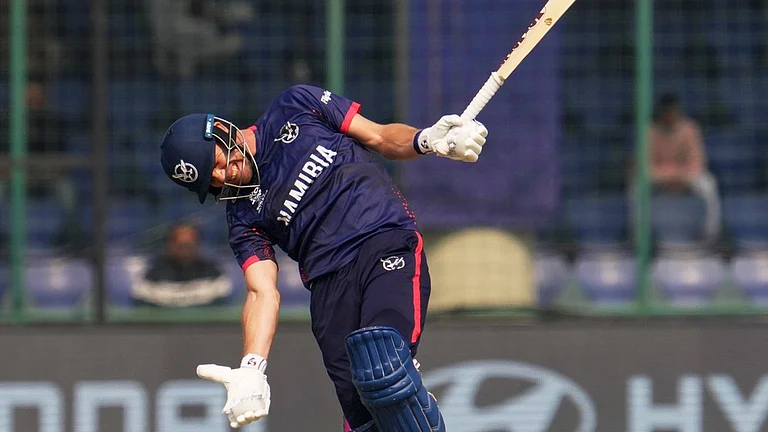India is continuously striving to provide high-quality and cost-effective healthcare to everyone and aligned with its philosophy of "Vasudhaiva Kutumbakam", has offered the Co-WIN platform as a digital public good to any interested country, Union Health Minister Mansukh Mandaviya said on Friday.
India has also offered Co-WIN as a digital public health good to the World Health Organization (WHO) through the global health body's C-TAP initiative, Mandaviya said as he chaired the health ministers' virtual session at the "Voice of Global South Summit-2023", titled "Cooperation to build resilient healthcare systems".
The session served as a platform to generate ideas from the developing world for holistic healthcare.
"It is the need of the hour to focus on long-term measures to build stronger, more resilient health systems that can prevent, prepare for and respond to future health-related challenges, while maintaining essential health services," Mandaviya said.
Highlighting the significant milestones achieved by India throughout its journey of managing the COVID-19 pandemic, he added that "we have administered more than 2.2 billion (220 crore) vaccines with a 90-per cent second dose coverage of the 12-plus population and 220 million (22 crore) precautionary doses. India's experience has reinforced the fact that capacity building of healthcare workers at various levels of governance, coupled with harnessing digital technology, is the way forward".
Referring to India's G20 presidency, the health minister said India endeavours to imbibe the requirements of the global south in its G20 health priorities."Our prime minister has said our G20 priorities will be shaped in consultation with not just our G20 partners, but also our fellow travellers in the global south," he said.
"Hence, we will take the voice of the global south to G20 and other international forums as partners in our development journey. The amalgamation of these efforts will ensure health equity at the global level and particularly, to the global south," Mandaviya added.
He commended India's efforts in providing training to support other countries in terms of capacity building of their healthcare professionals.
The training included Covid testing, clinical practices, case management, vaccine development and delivery for the participants from Asian, including South-East Asian, and African countries.
"India also shared its medical expertise by dispatching rapid response teams to Kuwait and Maldives," the minister said.
He said under the soon-to-be-launched Heal in India initiative, India aims to provide its health infrastructure for patients abroad and transform itself into a global hub for medical and value-based healthcare for patients from across the world.
With more than 1.3 million (13 lakh) allopathic doctors, 3.4 million (34 lakh) nurses and eight lakh AYUSH (ayurveda, yoga and naturopathy, unani, siddha and homeopathy) practitioners, India would provide the required care to patients from across the world, including the global south, through quality and affordable medical care, Mandaviya said.
He mentioned that India affirms to work with its partners in the global south to harness the potential of traditional medicines to promote health, wellness and people-centric care.
The health minister highlighted that since 2015, the world has been observing the International Day of Yoga with a huge participation.
He said 170 of the 194 WHO member-states have reported the use of traditional medicines and their governments have asked the WHO to support in creating a body of reliable evidence and data on traditional medicine practices and products.
The Indian government, in a collaboration with the WHO, established the WHO Global Centre for Traditional Medicine at Gujarat's Jamnagar on April 19, 2022.
Mandaviya said as a part of the global south, India's G20 presidency has a special significance.
India has prioritised its health track to build consensus at the global level, focusing on converging the ongoing efforts, mapping health resources and connecting those to the most deserving areas, so that health equity can be ensured at the global level and particularly, to the global south, he said.
-With PTI Input


























